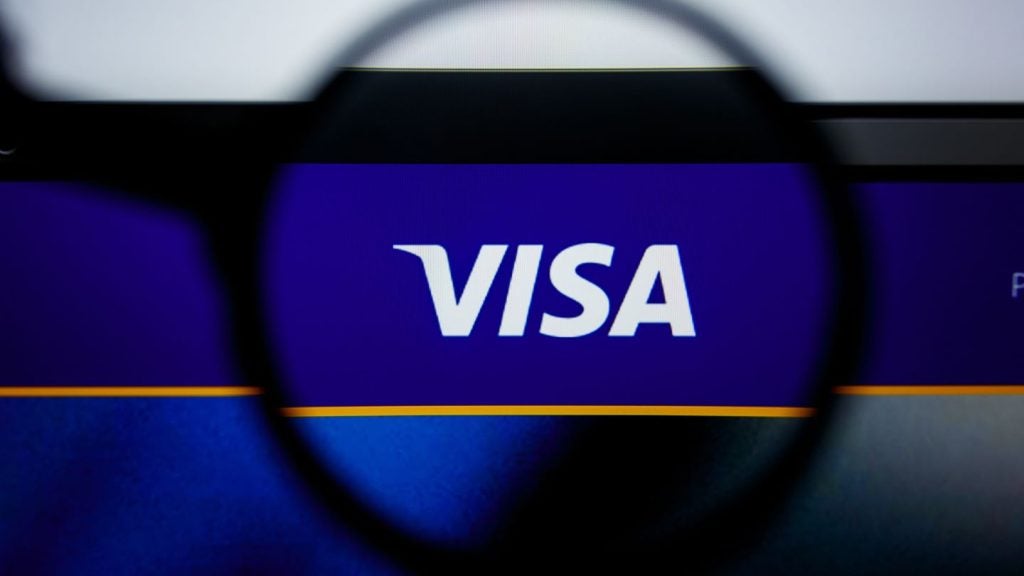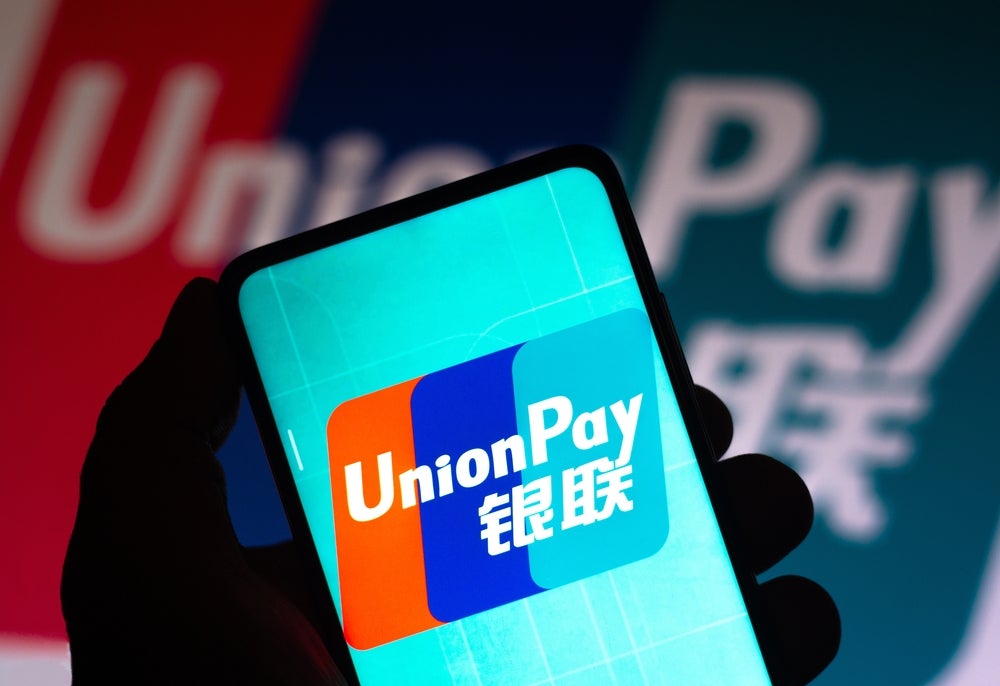As consumers move away from credit
cards, they are starting to look towards alternative ways to pay.
While debit cards have certainly benefited the most from the
exodus, the UK prepaid card industry is in line to pick up those
who want something different from their plastic, as John Hill reports.
The prepaid card market in the UK is
growing. While it may not compare to that of the US, a market that
has been going for 10 years and is worth an estimated $80 billion
annually, there is still a lot of scope for expansion within the
nascent industry.
There are two main kinds of prepaid card,
closed-loop and open-loop. Closed-loop cards usually come in the
form of store-based gift cards – cards which have a certain amount
put on them initially, which can then only be spent in the store or
retail chain where they were purchased. These almost always cannot
be reloaded with money by the customer, and have mainly come to
replace paper-based gift vouchers.
Open-loop cards are those that are backed by a
scheme – for example, MasterCard or Visa. These cards can usually
be reloaded by the consumer at various locations and the
general-purpose cards are aimed mainly at the underbanked, the
young and migrants – essentially those who would otherwise be
unable to get a debit or credit card.
Gift cards dominate the
market
How well do you really know your competitors?
Access the most comprehensive Company Profiles on the market, powered by GlobalData. Save hours of research. Gain competitive edge.

Thank you!
Your download email will arrive shortly
Not ready to buy yet? Download a free sample
We are confident about the unique quality of our Company Profiles. However, we want you to make the most beneficial decision for your business, so we offer a free sample that you can download by submitting the below form
By GlobalDataAccording to a 2008 survey by the UK
Cards Association (UKCA), the majority of prepaid cards currently
in issue in the UK are of the closed-loop gift card variety.
The UKCA estimates there were 1.7 million
prepaid cards in issue at the end of 2008, of which 31 percent were
categorised as disbursement cards, 30 percent were currency and
travel cards, and 24 percent were gift cards belonging to the
non-reloadable category.
The remainder of 16 percent were reported as
‘other’ cards that were mostly reloadable (these percentages may
not be representative of all prepaid cards, if the issuers that are
not reporting data to the UKCA predominantly issue a large number
of a single type of prepaid card – retailers, for instance).
Most of the purchases on prepaid cards were
made within the UK, with only 13 percent being made abroad.
Domestic transactions averaged £32.16 ($53) each. An even greater
proportion of cash acquisition or ATM withdrawal transactions, 91
percent, occurred in the UK; each acquisition averaged £85.
While there is some doubt about exactly how
many prepaid cards there are in issue the UK, Phil Alcock, general
manager at Fair Investment, said the figure will more than double
in the next year.
“There are currently about 2.3 million prepaid
cardholders in the UK, and this figure is just set to keep on
rising as people realise the benefits of a prepaid card,” he
explained. “By 2010, the prepaid credit card market is estimated to
be worth around £4 billion with more than 7 million prepaid
cardholders.”
Newcastle Building Society (NBS), Advanced
Payment Solutions (APS) and PrePay Solutions are the three largest
prepaid card providers and issuers in the UK. NBS is by far the
largest of the three when ranked by number of programmes operated,
with over 160 prepaid card schemes currently running, and NBS is
also ranked number 1 in the UK and Europe by MasterCard on monies
settled, with a turnover of just over $1 billion at the end of
2008.
Scope for growth
Philip Harrison, director of
business development at APS, believes the market is undergoing some
drastic changes at the moment, although the scope for growth is
large if players are willing to invest.
“If someone really starts to push a segment
then it will grow,” Harrison said, “but to what extent can they
afford to pump hundreds and thousands if not millions into growing
a particular sector – is there a return?
“Fundamentally, prepaid is a fairly low margin
business, otherwise everyone would be doing it. A lot of people
have jumped on the bandwagon in recent years and not realised it
wasn’t as lucrative as it first appeared. Various companies have
gone into administration, pulled out of the business, failed, and
other companies are trying to sell themselves. I think in general
it’s a bit of a levelling of the playing field and people have come
to realise the margins derived from prepaid aren’t the holy grail
that it was first thought to be.”
Another issue within the UK market has been
price.
As most bank accounts in the UK provide
essentially ‘free banking’ to those that never take out credit, it
becomes difficult to sell a product that charges you for items you
can already have for nothing.
To combat this, the issuers of general, travel
and currency prepaid cards have been lowering their prices in an
attempt to seduce customers who previously may have been put
off.
The advantages with currency prepaid cards
becomes especially apparent to consumers when cards like the ICE
Travellers Cashcard offer zero foreign transaction cost, and the
ability to load different types of the card with different
currencies.
With other types of card the advantages are
less obvious, as most will be engineered towards using the cards
for specific purposes like online purchases, or money remittance,
meanwhile charging larger fees for using it in other ways.
Phillipe Dufour, deputy CEO for PrePay
Solutions, and founder of PrePay Technologies, says the biggest
problem facing the market is regulation.
“I think the pitfalls and obstacles are not
new, they are the same. Prepaid is a process, or an application
that allows new distribution models and new processes, so the
regulation is not always there to support the novelty of the
market,” he said.
“It’s all about the regulation supporting the
new programmes. I’m not saying it won’t but it’s just the
regulation has to adapt. A large organisation which is operating
in, for example 15 countries, moves in, it takes time for the local
financial regulator to understand the European regulation, and then
it always takes more time for the direct application to the
marketplace. So I won’t say it’s an inhibitor, but as soon as
regulation is there it has to take time to adapt.”
Harrison disagrees: “I think it’s a lack of
awareness. It comes back to the question of how do you
cost-effectively market the company and the products and services
in a prepaid world that is basically still a fairly low margin
business?
“Last year you couldn’t move for
above-the-line advertising on the Tube [mass transit system in
London] for prepaid card programmes, but most of those
organisations have stopped advertising. Some CEOs have been
removed, having spent the odd million and not got a return,” he
continues.
“I think that’s the fundamental question – how
do you market this in a cost-effective way? The market still has
huge potential, the payday loan type scheme still has huge
potential, I think credit builder-style products still have a lot
of potential. It’s how do you raise the awareness of people who
don’t know the product, how do you get that message out?”
Technology and feature
innovation
As with any maturing industry,
innovation within the prepaid arena is helping to drive it
forward.
With US cards like Meta Payment Solutions
iAdvance (see CI 422), essentially a credit advance card and APS’
cashplus Credit Builder in the UK, a system that helps those with
bad or no credit history to build credit rating, the bar is being
set higher for other players. But of course there will always
obstacles to the progression of an industry. The prepaid market has
also started to branch out into other sectors, as the launch last
August of the first Sharia-compliant prepaid card, called Cordoba
Gold, shows.
The card, which is MasterCard-branded and was
launched in partnership with APS, works like a pay-as-you-go mobile
phone. It costs £9.95 (roughly $18), and because neither borrowing
nor lending is involved in this process it is Sharia-compliant.
This is both in the sense that the cardholder
will pay no interest, and that Cordoba is an Islamic financial
institution. It is a pioneering system in that the deposits are not
used to earn interest, and profits from the scheme are not used for
activities considered to be haram (prohibited) by the Quran, such
as gambling or alcohol-related business.
Despite setbacks along the way, Dufour
believes the market is on steady ground and is set to grow
exponentially in the coming months.
“It’s fair to say the prepaid market is
growing rapidly in the UK, probably led by the retail sector,
although the unbanked sector is also growing very quickly. Having
said that, you can see some important developments in the forex
travel card business. This is something that has been developing
rapidly over the last few months,” Dufour says.
“In the retail sector you’ve got a lot of
gifting activities, and if you start to put together all the
programmes and verticals currently out in the market, you start to
see some very important growth which is double-digit for sure and
maybe triple digits. I think growth is guaranteed for the next
couple of years as you have two dynamics in this market, which is a
replacement dynamic of existing prepaid applications and a
differentiation of the value chain, allowing the creation of new
applications in the industry – the combination of these two then
triggers the growth we’re seeing.”
Changes to the UK prepaid
landscape
CI analysis of the most popular UK
prepaid card offerings as of June 2009 show a marked difference
with those that were considered market leaders in June 2007, a time
when several prepaid card programmes were launched, only to
disappear two years later.
The most marked trend is the number of
programmes that have migrated from the Maestro platform to the full
MasterCard platform. Although MasterCard refused to give CI a
breakdown of the split between MasterCard and Maestro prepaid
programmes in the UK, it is clear that a shift is underway to more
fully-featured cards with capabilities that were not available on
the Maestro platform.
This would suggest that the UK prepaid market
has reached perhaps an initial phase in maturity – given that
prepaid cards first made their mark in the UK in 2004, it would be
logical to expect that consumers are now expecting prepaid cards to
have more sophisticated features and added-value benefits than were
available just a couple of years ago.
Another trend to have emerged is the rise of
the flexible pricing model. More and more cards these days are
offering users the choice of a pay-as-you-go fee package, aimed at
infrequent users of the card with higher per transaction fees, and
the fixed monthly fee, where users can avail themselves of a
certain number of transactions per month for a fixed price.
Whereas just one card offered this model a
couple of years ago, there are now several propositions in the UK
market which offer such pricing plans.
|
UK prepaid market |
|||
|
Top three UK open-loop prepaid |
|||
|
Issuer |
Number of active cards |
Number of card |
Volume issued 2008 |
|
Newcastle Building society |
500,000 |
160 |
n/a |
|
APS |
250,000E |
60 |
350 |
|
PrePay Solutions(1) |
14m |
n/a |
1,500 |
|
E=estimate. Notes: (1) Also includes gift |
|||
|
UK prepaid cards |
|||||||
|
Examples of most types of UK |
|||||||
|
Scheme |
Type |
Issuer |
Initial purchase fee |
ATM fee |
Load fee |
Foreign transaction |
|
|
Virgin Prepaid MasterCard PAYG |
MasterCard |
General |
PrePay Technologies |
£9.95 |
2.95% |
0-2.75% |
3.5% |
|
Travelex Cash Passport Euro |
MasterCard |
General |
Raphaels Bank |
0 |
€3.75 |
0 |
0 |
|
Splash Plastic Splash Maestro |
Maestro |
General |
PrePay Technologies |
£5 |
£1.50 |
2.5% |
2.5% |
|
ICE Travellers Cashcard (Euro) |
MasterCard |
Forex |
Raphaels Bank |
0 |
€3 |
0 |
0 |
|
White Eagle Payroll Debit |
Maestro |
Payroll |
NBS |
£9.95 |
£0.95 |
£1-£3 |
0 |
|
Post Office Travel Card |
Visa Electron |
Forex |
Bank of Ireland |
0 |
£1.50 |
1.5% |
2.75% |
|
3V voucher(1) |
Visa |
Gift |
Irish life and permanent |
0 |
n/a |
0-£3.50 |
1.75% |
|
Speedcard VEC |
Visa Electron |
General |
FBME |
£9.95 |
£1.20 |
1% |
0 |
|
PayPal Top up |
Visa |
General |
RBS |
£4.95 |
£2.00 |
0-£1 |
2.75% |
|
Lloyds TSB Travel Money |
Visa |
Forex |
Lloyds |
£7.50 |
£1.50 |
0 |
2.75% |
|
Notes: (1) Minimum single load on the card |
|||||||







